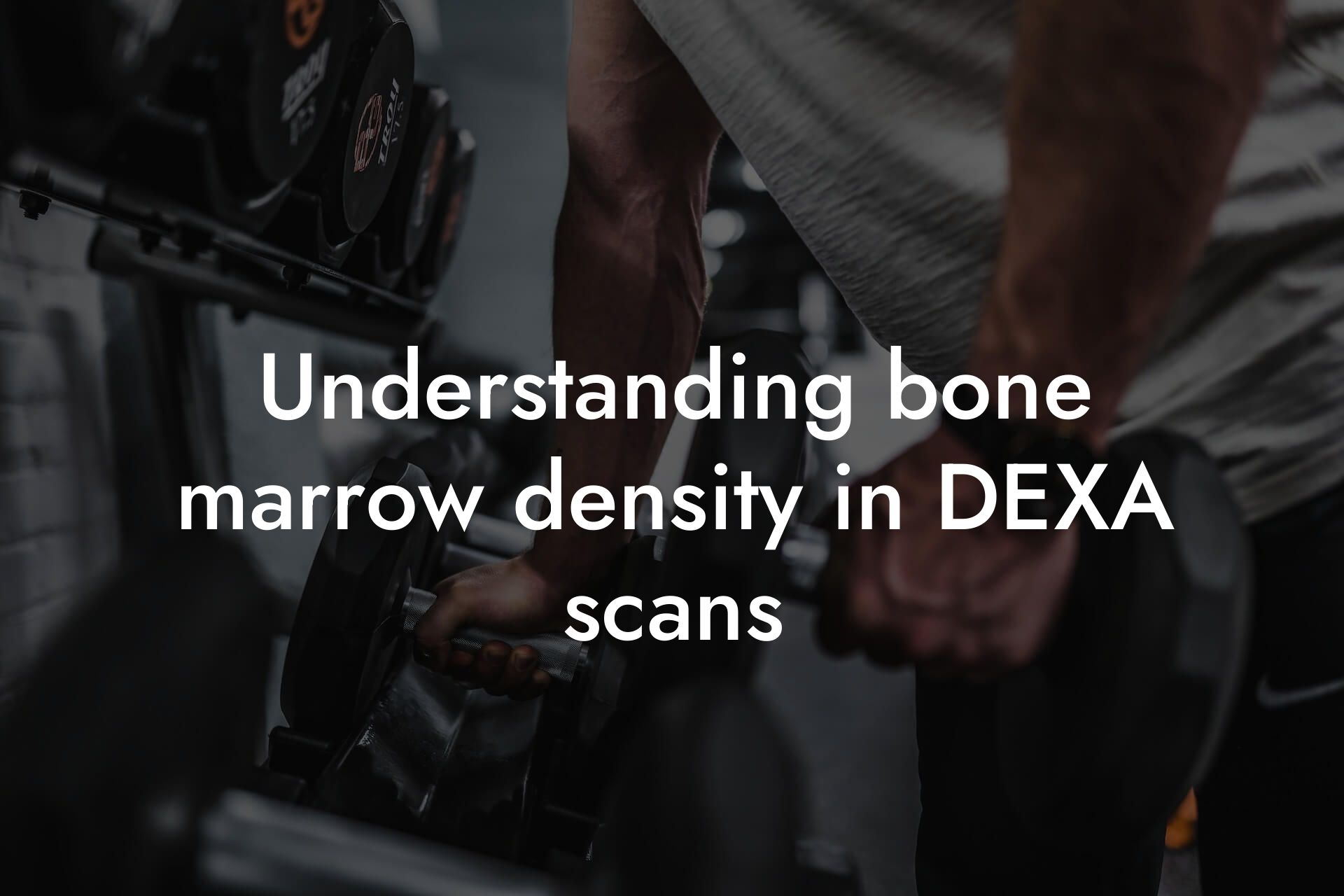As a high-earning professional, you understand the importance of maintaining a healthy and fit physique. At Tano Performance Group, we specialize in providing comprehensive body assessments using our state-of-the-art DEXA machine. One crucial aspect of body composition that we often encounter is the difference in body composition between men and women. In this article, we'll delve into the specifics of gender differences in body composition, exploring the reasons behind these differences and what they mean for your overall health and fitness.
Table of Contents
The Basics of Body Composition
Before we dive into the gender differences, it's essential to understand the basics of body composition. Body composition refers to the proportion of fat and lean mass in the body. Lean mass includes muscle, bone, and water, while fat mass is the amount of adipose tissue. A healthy body composition is critical for overall health, as it affects metabolism, energy levels, and disease risk.
Hormonal Influences on Body Composition
Hormones play a significant role in shaping body composition. In men, testosterone is the primary hormone responsible for muscle growth and development. Testosterone promotes the growth of muscle mass, which in turn increases metabolism and fat burning. In women, estrogen is the primary hormone, and it has a different effect on body composition. Estrogen promotes the storage of fat, particularly in the hips, thighs, and buttocks, which is essential for childbearing and lactation.
Body Fat Distribution
One of the most noticeable differences between men and women is the distribution of body fat. Men tend to store fat in the abdominal area, which is known as android fat distribution. This type of fat distribution is associated with a higher risk of chronic diseases, such as heart disease and type 2 diabetes. Women, on the other hand, tend to store fat in the gluteal-femoral region, which is known as gynoid fat distribution. This type of fat distribution is associated with a lower risk of chronic diseases.
Muscle Mass and Bone Density
Muscle mass and bone density are also affected by gender. Men generally have more muscle mass than women, which is due to their higher levels of testosterone. This increased muscle mass contributes to a higher resting metabolic rate, making it easier for men to lose weight and maintain weight loss. Women, on the other hand, tend to have lower muscle mass and higher body fat percentages. However, women also tend to have higher bone density than men, which reduces their risk of osteoporosis and fractures.
Metabolic Rate and Energy Expenditure
Metabolic rate and energy expenditure are also influenced by gender. Men tend to have a higher resting metabolic rate (RMR) than women, which means they burn more calories at rest. This is due to their higher muscle mass and lower body fat percentage. Women, on the other hand, tend to have a lower RMR, which can make it more challenging to lose weight and maintain weight loss.
Gender Differences in Body Composition and Disease Risk
The differences in body composition between men and women have significant implications for disease risk. Men are more likely to develop chronic diseases, such as heart disease and type 2 diabetes, due to their higher levels of android fat distribution. Women, on the other hand, are more likely to develop osteoporosis and fractures due to their lower bone density. However, women are also more likely to develop conditions such as polycystic ovary syndrome (PCOS) and gestational diabetes, which are linked to hormonal imbalances and insulin resistance.
Practical Applications for High-Earning Professionals
As a high-earning professional, understanding the gender differences in body composition is crucial for achieving your fitness goals. At Tano Performance Group, we use our DEXA machine to provide a comprehensive body assessment, which includes measurements of body fat percentage, lean mass, and bone density. With this information, you can tailor your diet and exercise program to your specific needs and goals. For example, if you're a woman looking to lose weight, you may need to focus on building lean mass through resistance training and high-intensity interval training. If you're a man looking to improve your overall health, you may need to focus on reducing your android fat distribution through a combination of diet and exercise.
In conclusion, understanding the gender differences in body composition is essential for achieving optimal health and fitness. By recognizing the hormonal, metabolic, and body composition differences between men and women, you can tailor your diet and exercise program to your specific needs and goals. At Tano Performance Group, we're committed to providing high-earning professionals with the tools and information they need to take their health and fitness to the next level. Contact us today to learn more about our comprehensive body assessment services and how they can help you achieve your goals.
Frequently Asked Questions
What is body composition, and why is it important?
Body composition refers to the proportion of fat and lean mass in the body. It's a critical aspect of overall health and fitness, as it affects various physiological processes, such as metabolism, hormone regulation, and athletic performance. Understanding body composition is essential for high-earning professionals like yourself, who value their physical appearance and want to optimize their physique.
What are the main differences in body composition between men and women?
The primary difference lies in body fat distribution and percentage. On average, women tend to have a higher percentage of body fat than men, particularly in the hips, thighs, and buttocks. Men, on the other hand, tend to store fat in the abdominal area. Additionally, men generally have more muscle mass than women, which affects their overall body composition.
What is the ideal body fat percentage for men and women?
The ideal body fat percentage varies depending on age, fitness goals, and health status. Generally, for men, a body fat percentage of 8-19% is considered athletic, while 20-24% is average. For women, 16-23% is considered athletic, and 24-30% is average. However, it's essential to consult with a healthcare professional to determine a healthy body fat percentage tailored to your individual needs.
How does muscle mass affect body composition?
Muscle mass plays a significant role in body composition, as it contributes to overall lean body mass. The more muscle mass you have, the higher your metabolism, and the easier it is to maintain weight loss. Additionally, muscle mass helps to improve bone density, reducing the risk of osteoporosis and fractures.
What is the relationship between body composition and bone density?
Body composition and bone density are closely linked. A higher percentage of lean body mass, particularly muscle mass, helps to improve bone density. This is because muscle mass puts mechanical stress on bones, stimulating bone growth and density. Conversely, a higher percentage of body fat can lead to decreased bone density, increasing the risk of osteoporosis and fractures.
How does hormone regulation affect body composition?
Hormones, such as testosterone and estrogen, play a crucial role in regulating body composition. Testosterone, for example, promotes muscle growth and bone density, while estrogen regulates fat distribution and storage. Hormonal imbalances can lead to changes in body composition, making it essential to maintain a healthy hormonal balance through a balanced diet and regular exercise.
What role does genetics play in body composition?
Genetics can influence body composition by affecting factors such as metabolism, hormone regulation, and fat distribution. While genetics can't be changed, understanding your genetic predispositions can help you develop a personalized fitness and nutrition plan to optimize your body composition.
Can body composition be changed through diet and exercise?
Absolutely! A well-balanced diet combined with regular exercise can significantly impact body composition. Focus on consuming lean protein, healthy fats, and complex carbohydrates, while incorporating resistance training and high-intensity interval training (HIIT) to build muscle mass and boost metabolism.
What is the best way to measure body composition?
There are several methods to measure body composition, including dual-energy X-ray absorptiometry (DXA), hydrostatic weighing, and skinfold measurements. However, DXA is considered the gold standard, as it provides accurate measurements of bone density, lean body mass, and body fat percentage.
How often should I measure my body composition?
It's recommended to measure your body composition every 4-6 weeks to track progress and make adjustments to your fitness and nutrition plan as needed. This frequency allows you to monitor changes in your body composition and make data-driven decisions to optimize your physique.
What is the impact of stress on body composition?
Chronic stress can significantly affect body composition by increasing the production of cortisol, a hormone that promotes fat storage and muscle breakdown. Managing stress through techniques such as meditation, yoga, and deep breathing exercises can help mitigate its negative effects on body composition.
How does sleep affect body composition?
Sleep plays a critical role in body composition, as it affects hormone regulation, metabolism, and muscle recovery. Aim for 7-9 hours of sleep per night to support muscle growth, fat loss, and overall body composition.
What is the relationship between body composition and athletic performance?
Body composition has a direct impact on athletic performance. A leaner body composition, with a higher percentage of muscle mass, can improve power, speed, and endurance. Conversely, excess body fat can hinder athletic performance, making it essential to optimize body composition for peak performance.
Can body composition affect mental health?
Yes, body composition can have a significant impact on mental health. A healthy body composition can boost self-confidence, reduce anxiety and depression, and improve overall mental well-being. Conversely, an unhealthy body composition can lead to negative body image, low self-esteem, and decreased mental health.
How does body composition change with age?
Body composition naturally changes with age, as muscle mass declines and body fat increases. This process can be slowed down through regular exercise, a balanced diet, and hormone regulation. It's essential to prioritize body composition as you age to maintain optimal health and fitness.
What is the role of nutrition in body composition?
Nutrition plays a critical role in body composition, as it provides the necessary building blocks for muscle growth and fat loss. Focus on consuming a balanced diet rich in lean protein, healthy fats, and complex carbohydrates to support optimal body composition.
How does body composition affect overall health?
Body composition has a significant impact on overall health, as it affects various physiological processes, such as metabolism, hormone regulation, and cardiovascular health. Maintaining a healthy body composition can reduce the risk of chronic diseases, such as obesity, diabetes, and cardiovascular disease.
What are the benefits of optimizing body composition?
Optimizing body composition can have numerous benefits, including improved athletic performance, enhanced physical appearance, increased self-confidence, and reduced risk of chronic diseases. By prioritizing body composition, you can take control of your health and fitness, leading to a better quality of life.
How can I maintain a healthy body composition?
Maintaining a healthy body composition requires a long-term commitment to a balanced diet, regular exercise, and stress management. Focus on making sustainable lifestyle changes, rather than quick fixes, to achieve optimal body composition and overall health.
What are some common misconceptions about body composition?
Common misconceptions about body composition include the idea that low body fat is always healthy, that muscle mass is only for athletes, and that body composition is solely determined by genetics. It's essential to educate yourself on the facts about body composition to make informed decisions about your health and fitness.
How can I get started with optimizing my body composition?
Getting started with optimizing your body composition begins with setting realistic goals, consulting with a healthcare professional, and developing a personalized fitness and nutrition plan. Focus on making progressive changes, tracking your progress, and staying committed to your goals.
What resources are available to help me optimize my body composition?
At Tano Performance Group, we offer a range of resources, including personalized coaching, nutrition planning, and fitness programming, to help you optimize your body composition. Additionally, consult with a healthcare professional, and stay informed through reputable sources to support your journey.
Here are some related articles you might love...
- The role of brown fat in body composition
- How body composition changes with endurance training
- Understanding bone marrow density in DEXA scans
- How DEXA scans detect visceral fat
- Advanced body composition metrics: Lean mass index
- The impact of muscle asymmetry on body performance
- How body composition affects metabolic rate
- Differences between subcutaneous and visceral fat
- How hydration levels affect body composition results
Zak Faulkner
Zak Faulkner is a leading authority in the realm of physical health and body composition analysis, with over 15 years of experience helping professionals optimise their fitness and well-being. As one the experts behind Tano Performance Group, Zak has dedicated his career to providing in-depth, science-backed insights that empower clients to elevate their physical performance and overall health.
With extensive knowledge of DEXA technology, Zak specializes in delivering comprehensive body assessments that offer precise data on body fat, muscle mass, bone density, and overall physique. His expertise enables individuals to make informed decisions and achieve their fitness goals with accuracy and confidence. Zak’s approach is rooted in a deep understanding of human physiology, combined with a passion for helping clients unlock their full potential through personalised strategies.
Over the years, Zak has earned a reputation for his commitment to excellence, precision, and client-focused service. His guidance is trusted by top professionals who demand the best when it comes to their health. Whether advising on fitness programs, nutritional strategies, or long-term wellness plans, Zak Faulkner’s insights are a valuable resource for anyone serious about taking their health and fitness to the next level.
At Tano Performance Group, Zak continues to lead our Content Team revolutionising how professionals approach their physical health, offering unparalleled expertise that drives real results.




